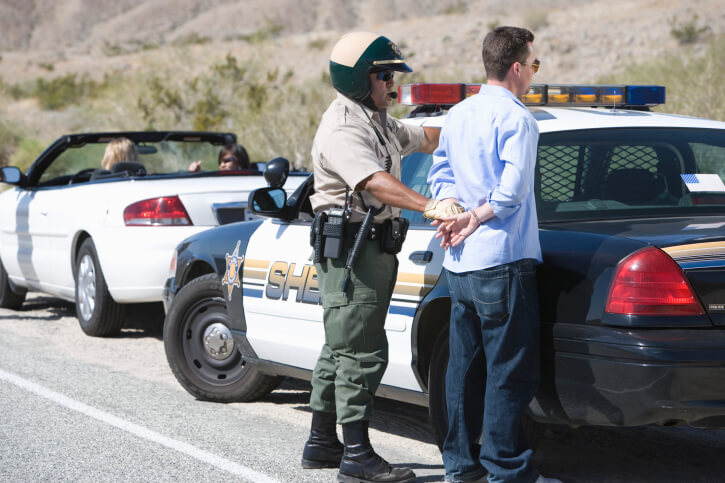
Top 10 Facts About Getting Arrested And The Arrest Process
Getting arrested and the arrest process is a daunting experience. When the police show up, you may be led off in handcuffs and taken to the police station where you are fingerprinted and put in a jail cell. Knowing what to expect can make the process go a little easier, however. Read on for the top 10 facts about getting arrested and the arrest process so you aren’t caught by surprise.
- The arrest officially occurs when you are no longer free to walk away from the police. As long as you are free to leave, you have not been officially arrested. This means if the police take you to the station for questioning, they do not necessarily have to read you your rights, however, as soon as you are detained and unable to leave, they must do so.
- The police must read you your Miranda Rights. Under a Supreme Court case called Miranda v. Arizona, the police must inform you of your right to remain silent and your right to a lawyer. If the police do not read you your rights, any evidence they obtain from questioning you is generally inadmissible in court.
- You have to formally request a lawyer. While you have the right to a lawyer, you have to invoke it. This means if you don’t ask, the police can question you and have no obligation to arrange a private lawyer or public defender for you.
- The police are entitled to pat you down and formally search you. When you are first arrested, they can check for a weapon. When you are taken to the police station, they can then search you thoroughly for contraband
- The fingerprinting process is normally referred to as booking. During this process, your information including your fingerprints and mug shot are taken and you are entered into the system. A DNA sample may also be taken at that time.
- The police must book you within a reasonable time after detainment. The police cannot simply bring you to the police station or jail and keep you there indefinitely. If they do not formally charge you with a crime and book you within a reasonable amount of time, you can request a writ of habeas corpus. This means you request to be taken in front of a judge who will determine whether they are holding you for just cause or not.
- You are usually allowed to make a phone call after you have been booked. In some states, you can call anyone you want. In others, you must call only a lawyer or call to arrange bail.
- You may be kept in jail until a bail hearing: This means that you may have to spend a night or two in jail before you are even given the option to potentially post bail.
- Prosecutors must generally schedule your hearing within 72 hours: While you can’t post bail right away, the police also can’t keep you from posting bail forever. Within a reasonable period – usually 72 hours – the prosecutor must arrange for an arraignment in which the charges against you are read and the judge sets your bail. You are not always entitled to post bail either. If you committed a serious crime or the police believe you may be a flight risk, then you may be denied bail.
- Bail can be paid by you or a family member or through a bail bond or posting of collateral: Bail is a payment that you make which guarantees you will return to court for your trial. This can be a small amount of money, but can also be up to millions of dollars depending on the crime you are accused of and your assets. If you can’t afford bail, you may be able to put your home or other valuable possessions up as collateral. You may also be able to get bail from a bondsman, which is a professional who puts up the money for you. If you appear at your trial, you – or the bondsman – get the bail money back.